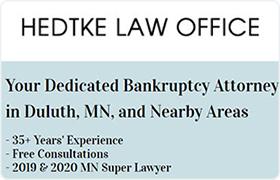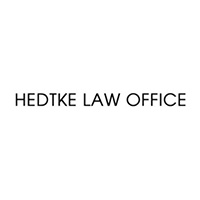Canyon Bankruptcy Lawyer, Minnesota
Sponsored Law Firm
-
 x
x

Click For More Info:
-
Hedtke Law Office
1217 E. 1St Street Duluth, MN 55805» view mapBankruptcy & Debt Sensible Debt Solutions
Hedtke Law Office is here to answer your questions and guide you through the bankruptcy process. We work to help you reduce your debt while keeping your personal property.
800-887-8940
Includes: Bankruptcy Litigation, Commercial Bankruptcy, Consumer Bankruptcy, Dissolution
Peter Cosmas Greenlee
Tax, Child Custody, Business Organization, Bankruptcy, Bankruptcy & Debt
Status: In Good Standing
Yvonne Michaud Novak
Estate, Consumer Bankruptcy, Limited Liability Companies, Trusts
Status: In Good Standing Licensed: 21 Years
 John Hedtke Duluth, MN
John Hedtke Duluth, MN Practice AreasExpertise
Practice AreasExpertise
